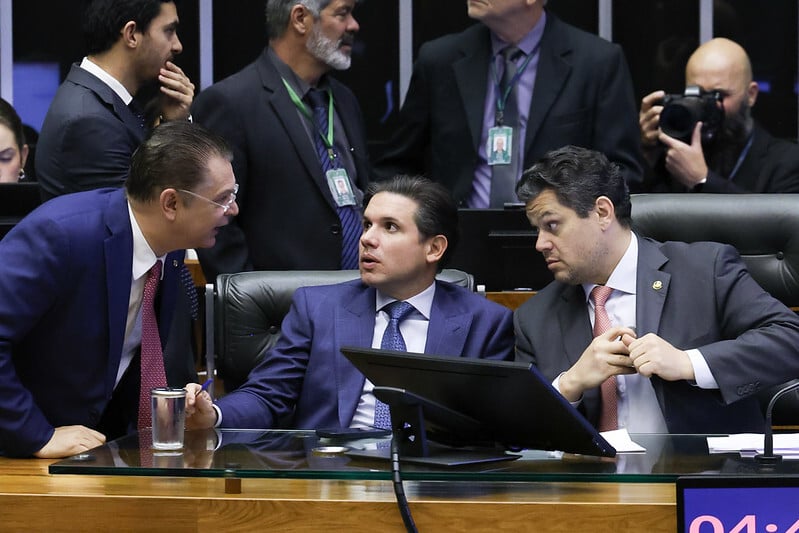
Finance Minister Fernando Haddad and Planning Minister Simone Tebet. Photo: Diogo Zacarias/MF
When Marcos Lisboa and Felipe Salto sat down to hash out the future of Brazil’s state apparatus, they didn’t beat around the bush. Speaking to Canal UM BRASIL — an initiative of the Sao Paulo State Federation of Trade in Goods, Services, and Tourism (FecomercioSP), in partnership with RenovaBR — the economists dug deep into the systemic flaws that have long held the country back.
They reached a blunt conclusion: if Brazil wants to get back on track, it must urgently and radically rethink how the state operates.
For Lisboa, a former president of private higher education institution Insper, any meaningful reform must begin with citizens. “We need to roll out real metrics that reflect quality of life,” he said, arguing that the effectiveness of public officials should be measured by tangible outcomes in people’s daily lives — not by political deals or administrative checklists.
He made it clear that Brazil’s federative model is showing signs of collapse. In his view, the current structure, weighed down by rigid obligations and fragmented responsibilities, is simply no longer sustainable. Unless the government finds a way to trim its excesses and spend smarter, a full-blown crisis is only a matter of time. “The money’s going to run out,” Lisboa warned. “And when it does, inflation will come roaring back.”
Felipe Salto, chief economist and partner at Warren Investimentos, carried that argument forward. He pointed out that while the fiscal framework approved in 2023 was designed to keep spending under control, it lacks teeth without the political will to back it up. “It’s not about rules anymore,” he said. “It’s about political will. We’ve put off the hard choices for too long.”
Salto emphasized that discretionary spending — the part of the budget that covers everything from federal agencies to passport services — is set to balloon in the coming years. If left unchecked, this trend could paralyze key government operations by 2027.
And then there’s the matter of public sector pay, a topic Salto didn’t shy away from. “We’ve got to cut down on salaries that go over the Supreme Court’s pay ceiling. If you want to get rich, go into the private sector,” he said.
Both experts also pointed to the bureaucratic inertia at the heart of the problem. A lack of performance evaluations and accountability mechanisms has led to a state apparatus that lumbers forward, detached from real-world impact. “You can’t just hire more people every time a new policy comes along,” Salto argued. “You end up dragging that weight around for years.”
Lisboa, in turn, warned that Brazil is inching closer to a fiscal and social meltdown. “There won’t be enough cash for congressional earmarks, legal perks, subsidies,” he said. “Something’s got to give.” If nothing is done, he fears a return to the inflationary chaos of the 1980s, or the street-level discontent that exploded in 2013.
What emerged from their dialogue was more than a critique, it was a clear call to action. Brazil must stop papering over cracks and instead commit to structural change that puts citizens at the center, reins in spending, and demands more from its public sector.
These urgent reflections are captured in “UM BRASIL #11: Modernização do Estado”, the newly released book that gathers the most compelling interviews from the past year of Canal UM BRASIL.
Download the complete publication (in Portuguese) for free, in PDF format, and explore key insights from Brazil’s leading voices on state reform. Click here to access UM BRASIL #11: Modernização do Estado.








